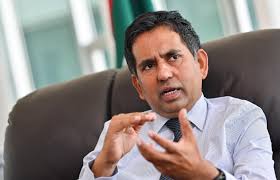The Maldives’ Minister of Economic Development and Trade, Mohamed Saeed, has announced that the free trade agreement (FTA) between the Maldives and Türkiye will be implemented in the first quarter of 2025. This follows the signing of the agreement on November 4, aimed at strengthening trade relations and boosting economic ties between the two nations.
Speaking during a programme on PSM News, Minister Saeed outlined the benefits that the agreement would bring to Maldivians, particularly in the area of exports. He emphasized that the deal would significantly ease the export of Maldivian fish to Türkiye, reduce trade barriers, and foster closer trade relations between the countries. Maldivian fish exporters will be able to tap into the Turkish market more easily, while local consumers and businesses stand to benefit from lower prices on Turkish products.
The agreement was a key topic during President Dr. Mohamed Muizzu’s visit to Türkiye in November of the previous year, where he met with Turkish President Recep Tayyip Erdogan. The discussions focused on deepening bilateral relations in several sectors, including trade, investment, renewable energy, and higher education.
In addition to the Türkiye FTA, Minister Saeed also mentioned the government’s efforts to implement a separate free trade agreement with China, set to take effect on January 1, 2025. The China agreement, initially signed in 2014, had faced delays following a change in government in 2018. However, President Muizzu has made it a priority to implement the agreement, which has the potential to further strengthen economic ties between the two countries.
The Maldives and China currently have trade activities worth around USD 700 million, but the government projects that the implementation of the FTA will increase this figure to USD 1 billion. The government is confident that these agreements will provide significant opportunities for Maldivian businesses, boosting both exports and access to global markets.
With these key agreements in place, the Maldives is positioning itself for a more robust international trade presence, enhancing opportunities for economic growth and collaboration on the global stage.





